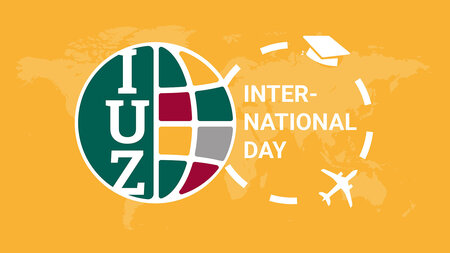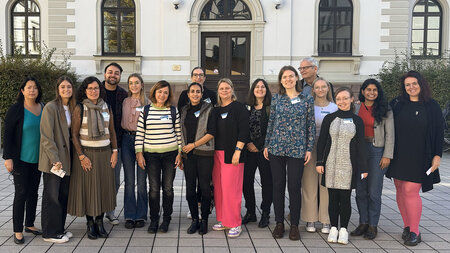@CITY-AF
Automated Driving in Cities

Project partners
14 industrial and academic partner: Aptiv Services Deutschland GmbH, AUDI AG, Continental Automotive GmbH, Continental Safety Engineering International GmbH, Continental Teves AG & Co. oHG, Daimler AG, Deutsches Zentrum für Luft- und Raumfahrt e.V., MAN Truck & Bus AG, Robert Bosch GmbH, Technische Universität Darmstadt, Technische Universität München, Valeo Schalter und Sensoren GmbH, ZF Friedrichshafen AG, 3D Mapping Solutions GmbH
Funding

Grant no. 19A18003L
Duration
07/2018-08/2022
Topics
@CITY-AF aims at developing safe, stress-free, efficient and comfortable automated driving in cities. Innovative automated functions should provide added value for the driver as well as for all other road user. The department for Cognitive and Engineering Psychology is involved in Subproject 4 "Human-Vehicle-Interaction". Research focuses primarily on implicit interaction between road users, i.e. the analysis of behaviour and behavioural changes which can act as communication signal (such as vehicle deceleration as signal to pedestrians). Implicit communication channels, processes and parameters are investigated for relevant scenarios and checked on acceptance, safety and comprehensibility in user studies. The resulting solutions provide a basis for the technical implementation of user-centred implicit communication in automated vehicles.
The project ended successfully by presenting the results at the final event of @CITY in Aldenhoven.
| Contact: | Dr. Matthias Beggiato | |
|---|---|---|
| Staff: | M. Sc. Ann-Christin Hensch | |
| Website: | https://www.atcity-online.de |
Publications, talks, poster
Beggiato, M., Hensch, A.-C., Hartwich, F., & Krems, J. (2023). Schlussbericht @City-AF - Automatisierte Fahrfunktionen: Implizite Mensch-Fahrzeug-Interaktion. https://doi.org/10.2314/KXP:1871104165.
Hensch, A.-C., Beggiato, M., & Krems J. F. (2023). Drivers' gap acceptance during parking maneuvers as a basis for initiating driving actions in automated vehicles. Transportation Research Part F: Traffic Psychology and Behaviour, 92, 133–142. doi:10.1016/j.trf.2022.11.008.
Beggiato, M., Hensch, A.-C., & Krems, J. (2022). Sollen automatisierte Fahrzeuge bei Dämmerung Manöverentscheidungen anpassen, um sich erwartungskonform zu verhalten? In S. Malejka, M. Barth, H. Haider, & C. Stahl (Eds.), TeaP 2022 - Abstracts of the 64th Conference of Experimental Psychologists. Lengerich: Pabst Science Publishers. ISBN: 978-3-95853-768-2.
Hensch, A.-C., Beggiato, M., & Krems J. F. (2021). Drive safely and comfortably – Gap Acceptance as a Basis for a user-centred Design of Driving Styles in Automated Vehicles. Proceedings of the 7th HUMANIST Conference, Greece, 26-27 October 2021. ISBN 978-2-9531712-6-6. Link Download.
Beggiato, M., Hensch, A.-C., & Krems, J. (2021). "Hey automatisiertes Fahrzeug: park mich sicher und komfortabel ein ohne andere zu irritieren." Weglückenakzeptanz als Basis menschzentrierter automatisierter Fahrstile. In A. Huckauf, M. Baumann, M. Ernst, C. Herbert, M. Kiefer, & M. Sauter (Eds.), TeaP 2021 - Abstracts of the 63th Conference of Experimental Psychologists. Lengerich: Pabst Science Publishers. ISBN: 978-3-95853-694-4.
Hensch, A.-C., Beggiato, M., & Krems J. F. (2020). Better safe than sorry - Gap Acceptance related to Participants' Age, Vehicle Types and Speed. In C. Dobel, C. Giesen, L. A. Grigutsch, J. M. Kaufmann, G. Kovács, F. Meissner, K. Rothermund, & S. R. Schweinberger (Eds.), TeaP 2020 - Abstracts of the 62th Conference of Experimental Psychologists (p. 95). Lengerich: Pabst Science Publishers.





